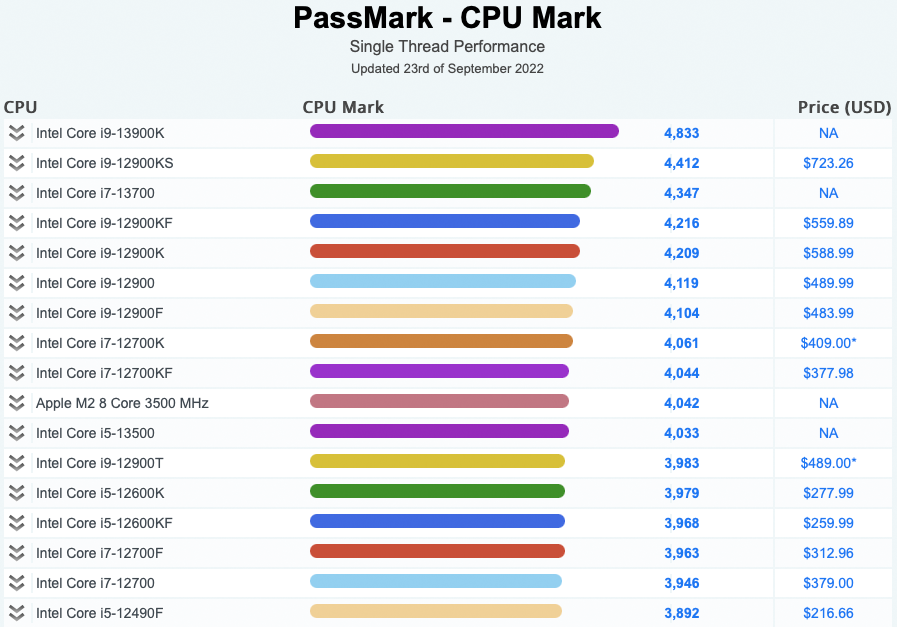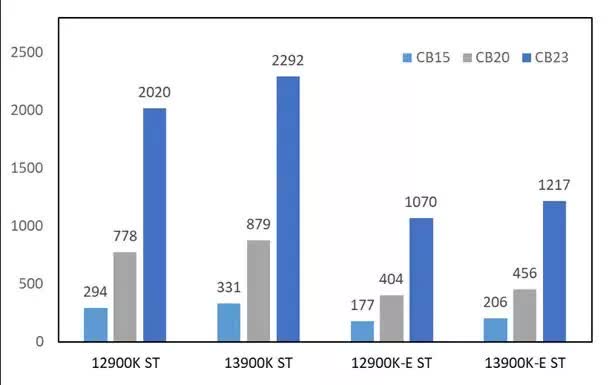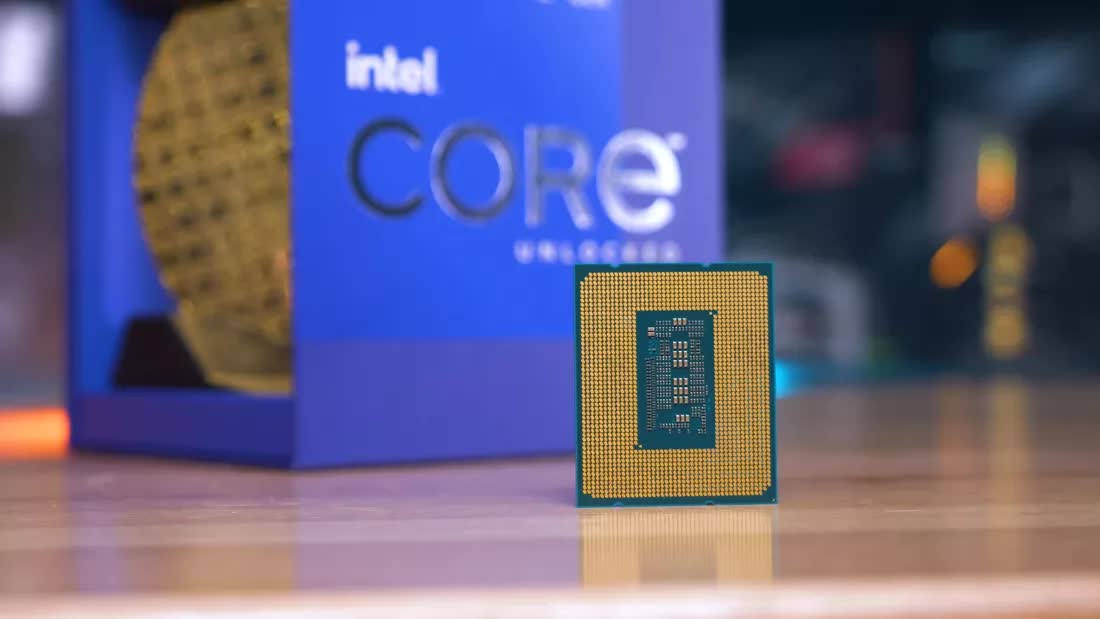Forward-looking: Performance information continues to flow as we close in on Intel and AMD's next-generation release dates. Both platforms are expected to significantly improve clock speed and instructions per cycle (IPC) over their predecessors. PassMark's latest single thread CPU benchmark seems to support those expectations, with Intel's 13900K sitting at the top of the charts.
The recently published single-thread benchmark score of 4,883 leaves little doubt regarding the new Intel flagship's capabilities. The 24-core i9 processor's eight performance and 16 efficiency cores can reach as high as 5.8GHz thanks to Intel's Thermal Velocity Boost (TVB) technology. The new architecture, combined with the i9's TVB technology, resulted in a more than 400-point increase over the previous single thread champion, the i9-12900KS.
Thermal Velocity Boost allows select Intel processors to unlock further performance when enough thermal headroom and additional power are available. The technology debuted several years ago and can drive more than 240W to the 13900K, boosting the two highest performance cores north of 5.8GHz.

The published information confirms previously reported rumors regarding the 13900K's performance. Earlier this year, i9-13900K engineering samples were reported to feature 5.5GHz all P-core turbo clock speeds, with boosts up to 5.8GHz across two loaded cores. The increase represents a significant improvement over the previous generation's flagship 12900K CPU.
Leaked information from ECSM and OneRaichu, discussed changes to Raptor Lake, including a new ring bus design, larger L2 and L3 cache, and improvements to latency and bandwidth. The changes resulted in 13% higher single-core performance and 42% multi-core performance in Cinebench's R23 benchmark.

With Raptor Lake launching later in October, fans have less than one month before Intel lifts information embargos. Then we can provide you with access to accurate product and performance information rather than unverifiable leaks and speculation.
The 7000 series launch is just around the corner on September 27th, which means AMD will have almost an entire month to establish a foothold with their new line of CPUs. Can Raptor Lake maintain enough buzz and momentum to persuade customers to wait for their release, or is Team Blue at risk of losing more of the desktop CPU market share based on its deployment window? Only time and customer activity will tell.
